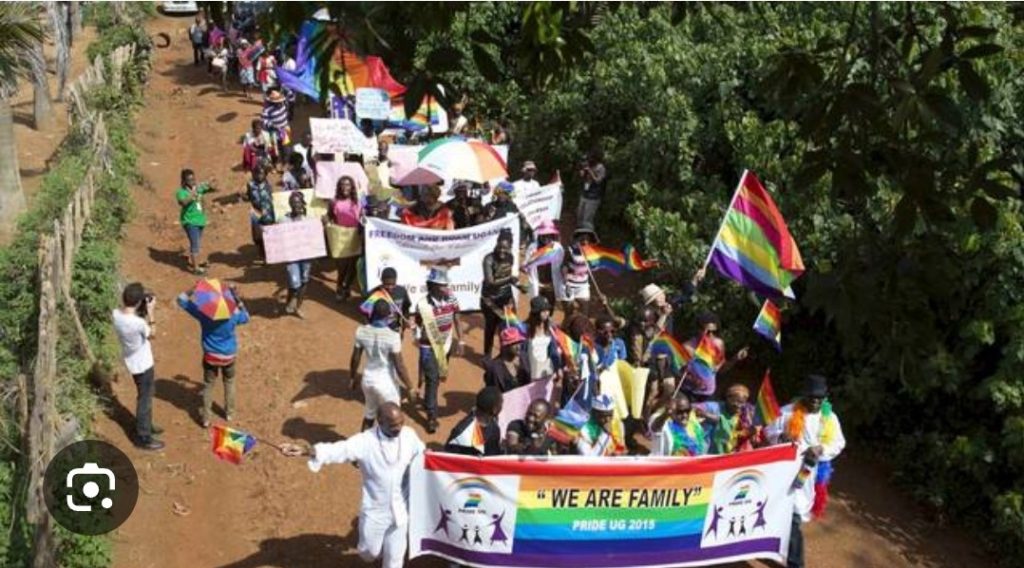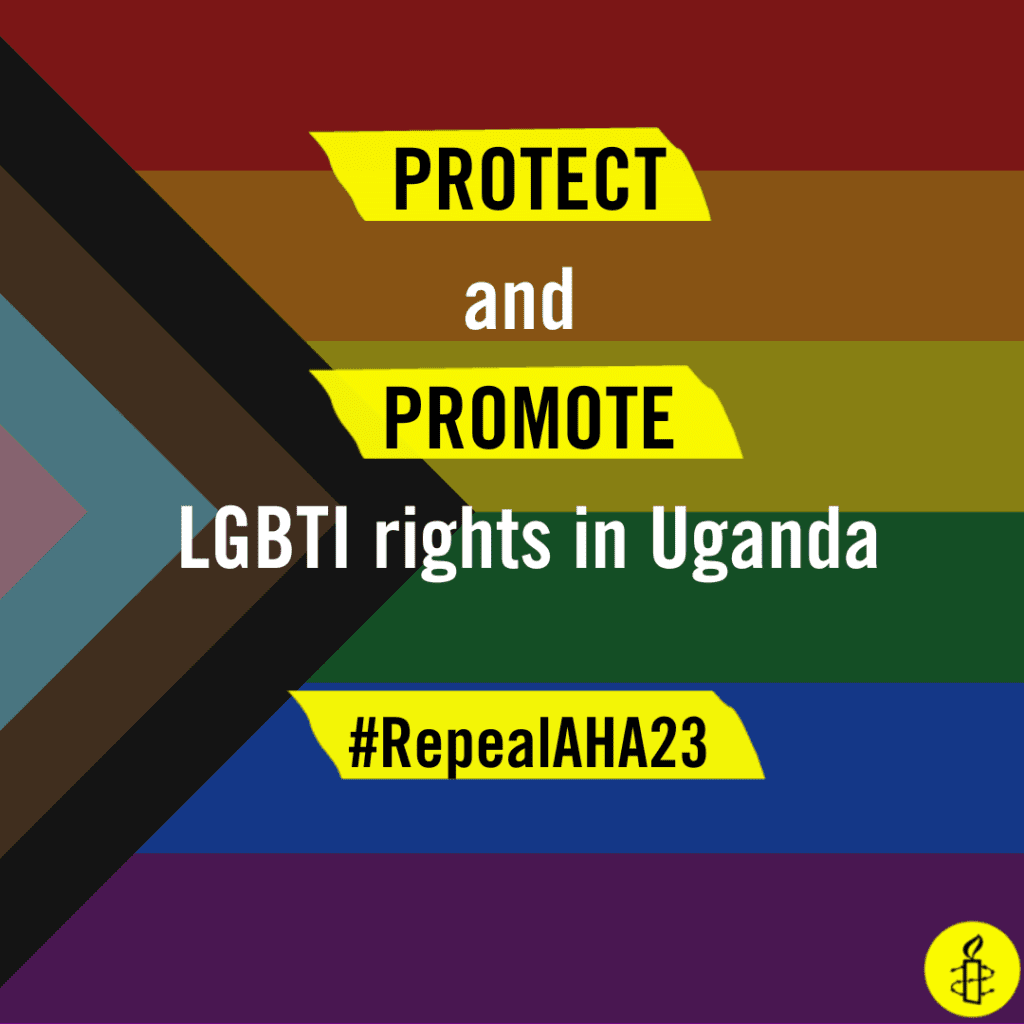In a country where homosexuality is criminalized, Jacqueline Kasha, a courageous Ugandan activist, has founded Freedom and Roam Uganda (FARUG), a lesbian, bisexual, transgender, and intersex rights organization. In 2011, she was awarded the Martin Ennals Award for Human Rights Defenders. In 2013 she was awarded the Nuremberg International Human Rights Award for her continuous LGBTI activism.
In May last year, the Ugandan parliament passed one of the most draconian laws against homosexuality, a law that imposes a punishment of life imprisonment for same-sex sexual acts, and up to 10 years behind bars for attempted same-sex sexual acts. It also imposed the death penalty for “aggravated homosexuality” and criminalizes the “promotion” of homosexuality, a provision that encourages homophobia. In this Q&A, Jacqueline, who is currently in the USA recovering from surgery, talks about the impact the law is having on her community, how she stays safe in the face of homophobia and what steps she wants to see President Yoweri Museveni take to better protect LGBTI people in Uganda.
Where were you in May last year when the Anti-Homosexuality act was passed?
I was at an orthopedics appointment in Massachusetts USA, watching everything on my phone. I wished I was home with my people and yet I knew I needed to take care of my health if I was to continue this fight. I had so many mixed feelings that day. In some instances, I was glad I was far away from home.
What was your immediate reaction?
I was dumbfounded at the so-called “debate” and how ignorant our house of representatives are. I was also very sad at the level of hatred that was displayed that day towards another segment of society. It was heartbreaking. I wished they put in such effort into other bills that really benefit us as people, instead of wasting more taxpayers’ money on duplicating an existing law on unfounded grounds by a few disgruntled community members. It was a very dark day in the history of our human rights movement, domestically and globally.
What were the reactions of those close to you or those who know your sexual orientation?
My phone was buzzing with panic from LGBTI persons, others asking if they could go to my house for a few days. I received lots of media interview requests which I turned down as I was not in the right state of mind, especially since I had just been told that I had to wait another five months for my surgery…It was a terrible day. There weren’t any unusual reactions from those who know me because there wasn’t really anything that was going to change about who I am. It was about all LGBTI persons. For me, it was about the messages of solidarity, love and strength from across the world. And yes, I also had to fight so many trolls who just couldn’t stay off my social media pages.
What has changed for you and LGBTI persons in Uganda since the passing of the law?
A lot has changed, especially as this is the second time LGBTI persons in Uganda are going through the same tragedy. In 2014, not so many people were involved in LGBTI rights activism, so many were still in the closet and few activists were on the frontline. This time around, so many LGBTI persons are visible and have publicly advocated for their rights and joined the struggle for their rights. Their visibility also means that LGBTI people are more vulnerable than in 2014. There was more panic and distress this time because of the high level of media exposure. This time it was more brutal than in 2014. Anti-LGBTI actors had spent several years preparing for this crackdown on LGBTI rights, so they were more aggressive and organized than the first time.

Several LGBTI persons have since gone underground which is now impeding all our efforts, especially in the health sphere in the fight against HIV, mental illness and economic disparities. We have recorded the highest number of abuses and violations over the past year than we have reported in the last 23 years, since the movement for respecting the rights of LGBTI persons was started. Many have since gone into exile and asylum, while many others have withdrawn and gone back into the closet. There is an increase in suicide attempts and suicides and there are more illegal detentions and arbitrary arrests.
Since the closure of our Drop In Centres (DICs) across the country, many people have stopped receiving free treatment, health related information, goods and resources. It’s a mess to be honest. However, when we started this human rights movement, we didn’t anticipate the level at which it would grow. We weren’t fully prepared, but we did invest a lot in our growth as resilient activists, meaning it’s not over until we say it’s over. We are still fighting regardless. We shall not lose hope and shall not stop until they stop violating our human rights.
How have you managed to stay safe from possible homophobia or even arrest?
This is a tricky question. But very important. I’m safe most of the time because I have the privilege to travel and tell the world about our plight, building allies and networks. Those connections are the ones that have made the Ugandan LGBTI rights movement one of the strongest on the continent and even globally. I was able to build a strong protection network around myself. I never move alone, I have a security system I follow since I have faced physical attacks in the past, stalkers and instigators threatening me on social media and in person. I have been arrested in the past, but I wasn’t charged because I know the law very well. They are just disruptive mechanisms that I have learnt over the years. We have been training LGBTI persons in some of these security measures, both physical and digital. So sometimes the law has loopholes that enable our policy holders and law enforcement to act with impunity. For example, they have been arresting people for no reason, but they cannot just arrest me anyhow because I am aware that human rights apply to all and I will bankrupt the country with lawsuits if they dare to violate my rights without just reason. Right now, I am still in the USA recovering from my surgery but still fighting for the rights of LGBTI persons daily.
What is your greatest fear?
Silence. Many of the Members of Parliament and anti- gay groups know the truth, but they choose to keep silent. That breaks my spirit and heart every day. They know we are not paid to be LGBTI, they know we don’t recruit anyone, they know we need to urgently be integrated into the national HIV/Aids plan, but they continue to discriminate against us. They know that since time immemorial, homosexuality has existed in our African traditions and customs and was never criminalized until colonialism, but they choose to remain silent simply because they can use us as a political ladder.
The silence kills me, and it will destroy so many communities around the world.
A year since the law was passed what would you want the Ugandan President Yoweri Museveni to do?
He should stop listening to falsehoods or misinformation that his aides feed him, he must use his own reasoning to understand issues of sexuality and gender and discuss with his party and cabinet the dangers of discriminating against a certain segment of society. Many talented, experienced and well-educated people have left the country because of fear. The country is losing out on a lot of human resource. The economy is being affected. Our religious values are being trampled upon by many fake pastors who are looking for cheap popularity and money from religious fundamentalists. I want to request that he puts together a taskforce that can work with LGBTI activists to provide him with proper information that he can use to understand LGBTI identities and rights instead of relying on a section of people around him are who are hiding the correct information from him.
The President needs to understand that discrimination hinders development.



